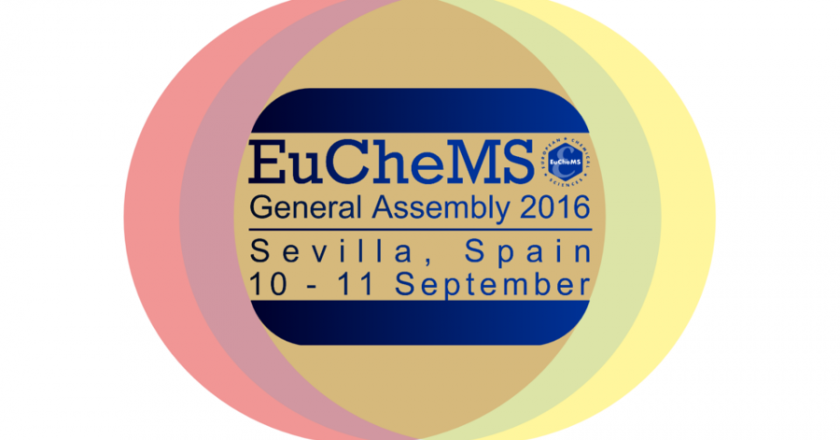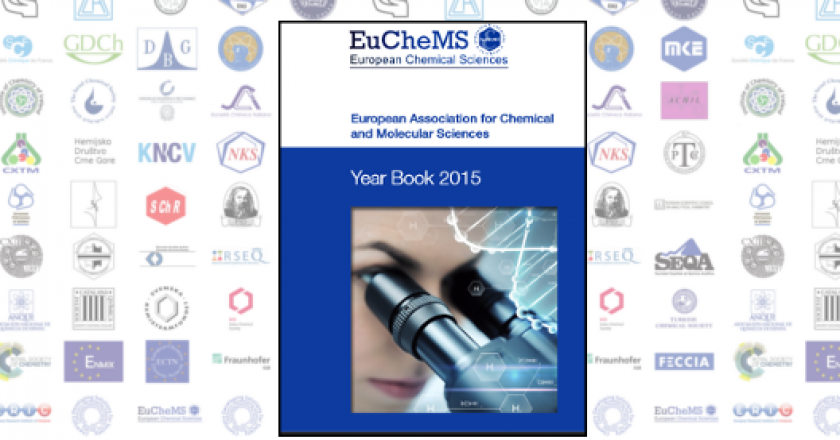As part of its wider strategy to combat antimicrobial resistance (AMR), the European Commission has published a Special Eurobarometer survey, showing a decrease of 6% in the consumption of antibiotics but at the same time a persistent lack of awareness on their effects. The survey clearly demonstrates that there exists a direct link between better information and lower consumption. The Commissions’ Action Plan on AMR (2011-2016) is currently being evaluated and will, together with the Eurobarometer results, feed into the ongoing work to identify value added EU Action in the fight against AMR as from next year and beyond, among other by giving a stronger push to innovation and research for the development of new antibiotics. European Health Commissioner Vytenis Andriukaitis stated that he would like the EU to be “the best practice region in the field of antimicrobial resistance (AMR), giving a stronger push to research for the development of new antibiotics, as well as alternatives to antimicrobials.” This shows that the Commission shares EuCheMS concerns presented earlier this year at a STOA-EuCheMS workshop on AMR.
Source: http://europa.eu/
Air Quality Legislation: MEPs Strike Deal with Council
Plans for more ambitious national caps on emissions of key pollutants by 2030 were informally agreed by MEPs and the Dutch Presidency of the Council last month. The proposal sets out the national emission reduction commitments for the main pollutants: sulphur dioxide (SO2), nitrogen oxides (NOx), non-methane volatile organic compounds (NMVOC), ammonia (NH3), and fine particulates (less than 2.5 micrometers in diameter). The agreement on air pollution, which causes about 400,000 premature deaths in the EU per year, now needs to be endorsed by the Environment Committee and Parliament as a whole.
Source: http://www.europarl.europa.eu/
OECD Report on the Economic Consequences of Outdoor Air Pollution
The report, published in June, is part of the “Costs of Inaction and Resource scarcity: consequences for Long-term Economic growth” (CIRCLE) project, which seeks to take into account the feedbacks from environmental pressures and resource scarcity to the economy.
One of the conclusions of this report, which counted with the collaboration of the Joint Research Centre (JRC), was that the projected increase in concentrations of PM2.5 and ozone will lead to substantial effects on the economy. For instance, healthcare costs related to global air pollution are projected to increase from USD 21 billion in 2015 to USD 176 billion in 2060.Also, by 2060, the annual number of lost working days, which affect labour productivity, are projected to reach 3.7 billion (currently around 1.2 billion) at the global level.
Source: https://ec.europa.eu/jrc/
EuCheMS Response to Public Consultation on Horizon 2020 ‘Science with and for Society’
EuCheMS has recently submitted a response to the Public consultation on Horizon 2020 ‘Science with and for Society’ Work Programme 2018-2020 (SWAFS). These contributions to the present consultation will feed into preparation of the next SWAFS Work Programme 2018-2020, which will be developed by the European Commission during the end of 2016 and beginning of 2017.The ‘Science with and for Society’ Programme addresses the European societal challenges tackled by Horizon 2020, and aims to create new ways of connecting science to society.
Source: http://www.euchems.eu/
Consequences of British Referendum to H2020
The Statement of 29 June of the Heads of State or Government of 27 Member States, as well as the Presidents of the European Council and the European Commission, confirms that “until the UK leaves the EU, EU law continues to apply to and within the UK, both when it comes to rights and obligations”. This includes the eligibility of UK legal entities to participate and receive funding in Horizon 2020 actions.
Source: http://ec.europa.eu/
A First Look at the Slovak Presidency Programme
Earlier this month, Slovakia started its Presidency of the Council of the EU, a role which will have until the end of the present year. According to its programme, one of the main topics of the Slovak Presidency in the field of research is support for young researchers. The Presidency aims to adopt Council conclusions on measures to support young researchers with a focus on increasing the attractiveness of scientific careers, encouraging mobility and investing in human potential in the field of research and development. The Presidency also envisages to work upon the Commission´s European Defence Action Plan which should, among other, stimulate research in this field. The Slovak also Presidency also intends to start the trilogues with the European Parliament following the European Commission’s submission of the second package of legislative proposals on copyright reform, a package aiming to ensure the cross-border portability of online content services in the internal market.
Source: http://www.eu2016.sk/en
EuCheMS and RSC on the Outcome of the British Referendum
Following the vote by the United Kingdom to leave the European Union, both EuCheMS and the UK´s Royal Society of Chemistry have reinforced their commitment to diversity, inclusivity and to the collaboration among learned societies in Europe. As mentioned on a EuCheMS letter to RSC, “We believe that EuCheMS will continue to be of very great importance to the RSC since it will provide one of very few mechanisms by which the RSC will be able to influence European policy concerning chemistry”.
Source: http://www.euchems.eu/
Chemists Urge Israel to Ban Chemical Weapons
The President of the Israeli Chemical Society, Prof. Ehud Keinan, has published an open letter urging the ratification of the Chemical Weapons Convention (CWC) by Israel. Israel, Egypt, Southern Sudan (who plan to sign) and North Korea are the only countries of the 196 recognised countries that have not signed and ratified the Chemical Weapons Convention which provides for the supervised elimination and monitoring of all chemical weapons under the auspices of the Organisation for the Prohibition of Chemical Weapons (OPCW). EuCheMS President David Cole-Hamilton says: “I applaud Prof. Ehud Keinan’s brave action. Chemical weapons have no place in a civilised society. They do not act as a deterrent and their effects are appalling. We have a unique opportunity to rid the world of this scourge and we are so close to doing it. EuCheMS calls upon Prime-Minister Netanyahu to ratify the CWC as soon as possible and for Egypt, Southern Sudan and North Korea to follow this inspiring lead”.
Source: http://www.euchems.eu/

EuCheMS General Assembly 2016
More info and registration here

EuCheMS 2015 Year Book is Now Online!
Discover all about our activities here

Thank You Chemistry
Workshop on Socioeconomic Analysis in Applications for Authorisation and Restrictions Under REACH
Brussels, Belgium
29 June 2016
Website: http://europa.eu/
Marie Skłodowska-Curie Forum 2016
Brussels, Belgium
29 June 2016
Website: http://ec.europa.eu/
Horizon 2020 Societal Challenge 2 Info Week
Brussels, Belgium
27 – 29 June 2016
Website: http://ec.europa.eu/
High-Level Conference on Food Authenticity and Integrity
Brussels, Belgium
24 June 2016
Website: http://europa.eu/
The Synergies between European Structural and Investment Funds (ESIF) and Research and Innovation Funding: Stairway to Excellence
Bucharest, Romania
22 June 2016
Website: https://ec.europa.eu/
Intellectual Property Rights (IPR) enforcement conference 2016
Brussels, Belgium
21 June 2016
Website: http://europa.eu/
Roadmap for the first EU-wide Guarantee of Origin Scheme for Green Hydrogen
Brussels, Belgium
17 June 2016
Website: http://ec.europa.eu/
IASOC 2016 – XVII Session of Ischia Advanced School of Organic Chemistry
Naples, Italy
25 – 29 September 2016
Website: http://www.iasoc.it
16th Ružička days – International conference 16th Ružička days: “Today Science – Tomorrow Industry”
Vukovar, Croatia
21 – 23 September 2016
Website: http://www.ptfos.hr/ruzicka
ECRICE – European Conference on Research in Chemical Education
Barcelona, Spain
7 – 10 September 2016
Website: http://ecrice2016.com/
JCO – Journées de Chimie Organique
Palaiseau, France
7 – 9 September 2016
Website: http://www.jco2016.com
9th AES 2016 – 9th Asian-European Symposium on Metal-Mediated Efficient Organic Synthesis
Stockholm Sweden
4 – 7 September 2016
Website: http://aes2016.se/
NRC9 – 9th International Conference on Nuclear and Radiochemistry
Helsinki, Finland
29 August – 2 September 2016
Website: http://nrc9.it.helsinki.fi/
IX International School on Organometallic Chemistry “Marcial Moreno Mañas”
San Sebastián, Spain
06 – 08 July 2016
Website: http://school2016.orfeo-cinqa.es/
